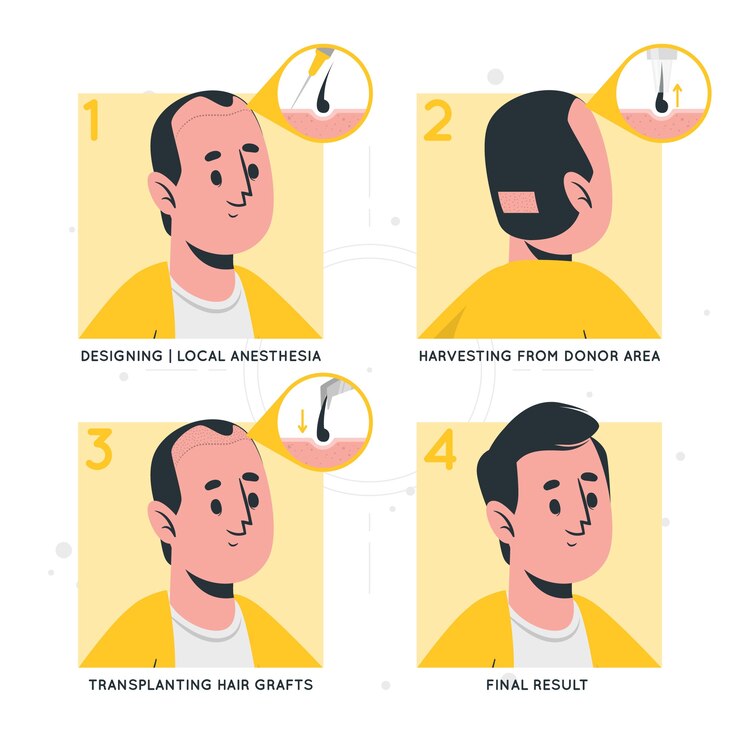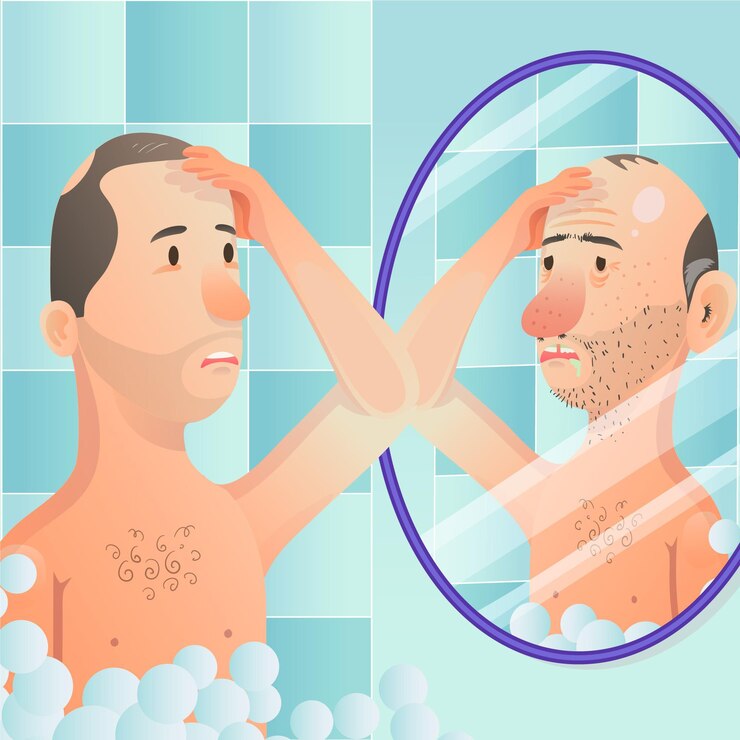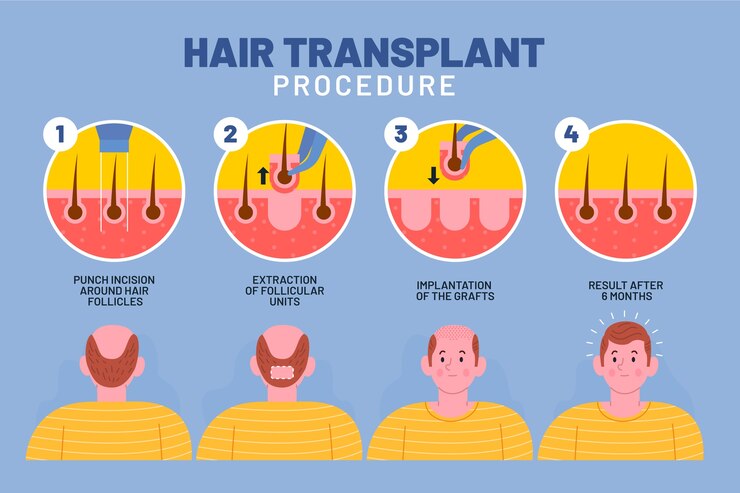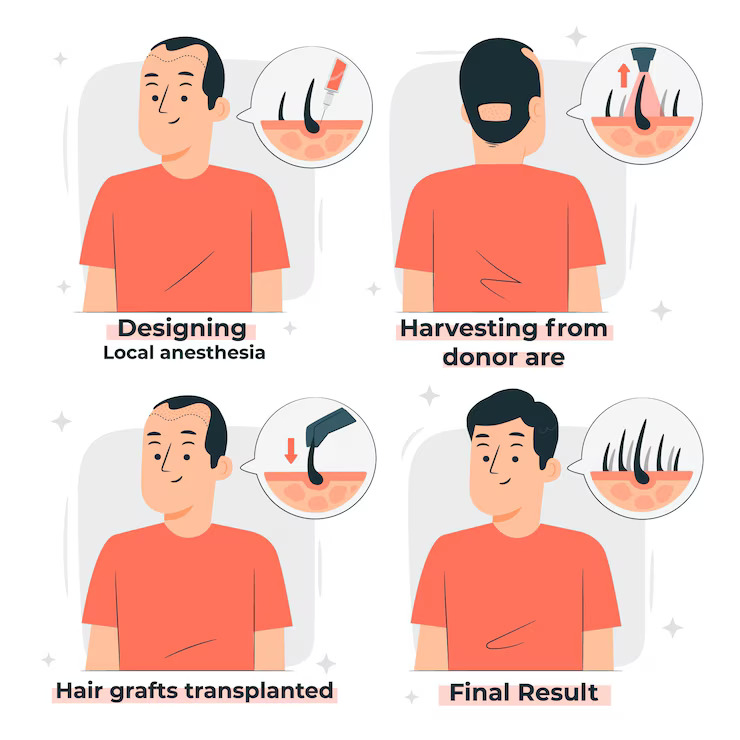Hair transplant surgery marks a significant milestone for individuals seeking to restore their hairline and regain confidence. After undergoing this procedure, it’s crucial to understand what to expect during the recovery phase and how to maintain the newly transplanted hair for long-term success.
Immediate Post-Surgery Car
Immediately following the hair transplant surgery, patients may experience mild discomfort and swelling around the scalp. This is completely normal and typically subsides within a few days. Doctors usually prescribe pain medications and antibiotics to prevent infection and manage any post-operative pain.
Patients are advised to avoid touching or scratching the scalp to prevent dislodging the newly transplanted follicles. It’s essential to follow the surgeon’s post-operative care instructions meticulously to ensure optimal healing and graft survival.
Understanding Hair Growth Cycles
Understanding the hair growth cycles is crucial for patients to manage expectations post-transplant. Hair follicles typically enter a resting phase after transplantation, where the transplanted hair sheds before new growth begins. This shedding is a natural part of the process and should not cause concern.
New hair growth usually starts within 3 to 4 months after surgery, with significant improvement seen over the following months. Full results can take up to 12 months to become apparent, as hair follicles gradually establish themselves and begin producing thicker, natural-looking hair.
Long-Term Hair Care Tips
- Shampooing and Conditioning:- Proper shampooing and conditioning play a crucial role in maintaining the health of both transplanted and existing hair. Patients should use mild, sulfate-free shampoos recommended by their surgeon to avoid irritation and preserve the scalp’s delicate balance. Conditioning helps keep the hair hydrated and manageable.
- Scalp Massage and Blood Circulation:- Regular scalp massages promote blood circulation to the hair follicles, enhancing nutrient delivery and encouraging healthy hair growth. Gentle circular motions with fingertips can stimulate the scalp without disrupting the transplanted follicles.
- Sun Protection:- Patients should protect their scalp from direct sun exposure for at least six months post-surgery. Prolonged sun exposure can damage the delicate skin and potentially affect the transplanted hair follicles. Wearing a hat or using a sunscreen with adequate UV protection is recommended when outdoors.
- Healthy Lifestyle Choices:- Maintaining a healthy lifestyle contributes significantly to overall hair health. Patients should consume a balanced diet rich in vitamins and minerals essential for hair growth, such as biotin, zinc, and vitamin C. Regular exercise and stress management techniques also support optimal hair growth.
- Managing Expectations:- Patience is key when it comes to hair transplant results. While initial growth may be visible within a few months, achieving full density and coverage can take up to a year. Surgeons often schedule follow-up appointments to assess progress and provide additional guidance on hair care and styling as the patient continues to recover.
Do’s and don’ts recommended by Dr. Sangavikar:
After undergoing a hair transplant at Restore Clinic under the care of Dr. Ashish Sangavikar, it’s crucial to follow specific guidelines to ensure optimal healing and maximize the results of your procedure. Here are the essential do’s and don’ts recommended by Dr. Sangavikar:
Do’s After Hair Transplant
- Follow Detailed Post-Operative Instructions:- Dr. Sangavikar emphasizes the importance of following the detailed post-operative instructions provided by Restore Clinic. This includes how to clean your scalp, when to take prescribed medications, and what activities to avoid.
- Keep the Scalp Clean and Moisturized:- Use the recommended shampoo and cleansers to keep your scalp clean without disturbing the hair follicles. Gently pat the scalp dry after washing and avoid rubbing or scratching.
- Take Prescribed Medications on Schedule:- Take all medications as prescribed by Dr. Sangavikar, including antibiotics and pain relievers. These medications help prevent infections and manage any discomfort during the initial recovery phase.
- Sleep with Your Head Elevated:- For the first few nights after surgery, sleep with your head elevated using pillows to reduce swelling and promote proper blood circulation to the scalp.
- Maintain a Healthy Diet and Hydration:- Eat a nutritious diet rich in vitamins and minerals that support hair growth, such as fruits, vegetables, lean proteins, and whole grains. Drink plenty of water to stay hydrated, which aids in overall healing.
Don’ts After Hair Transplant
- Avoid Touching or Scratching the Scalp:- Refrain from touching or scratching the transplanted area to prevent dislodging grafts or causing damage to the scalp. Follow Dr. Sangavikar’s instructions on how to gently cleanse the scalp.
- Steer Clear of Strenuous Activities and Heavy Lifting:- Avoid vigorous activities, heavy lifting, and exercises that increase blood pressure for at least two weeks post-surgery. These activities can strain the scalp and interfere with hair follicle healing.
- Say No to Smoking and Alcohol Consumption:- Smoking and consuming alcohol can impair hair growth and delay the healing process. It’s essential to abstain from these substances during the recovery period.
- Don’t Skip Follow-Up Visits:- Attend all scheduled follow-up appointments with Dr. Sangavikar at Restore Clinic. These appointments allow him to monitor your progress, assess hair growth, and address any concerns you may have.
- Avoid Using Styling Products and Heat:- Refrain from using styling products, hairdryers, or styling tools on the transplanted hair until advised otherwise by Dr. Sangavikar. Gentle handling of the scalp promotes healing and protects newly transplanted follicles.





